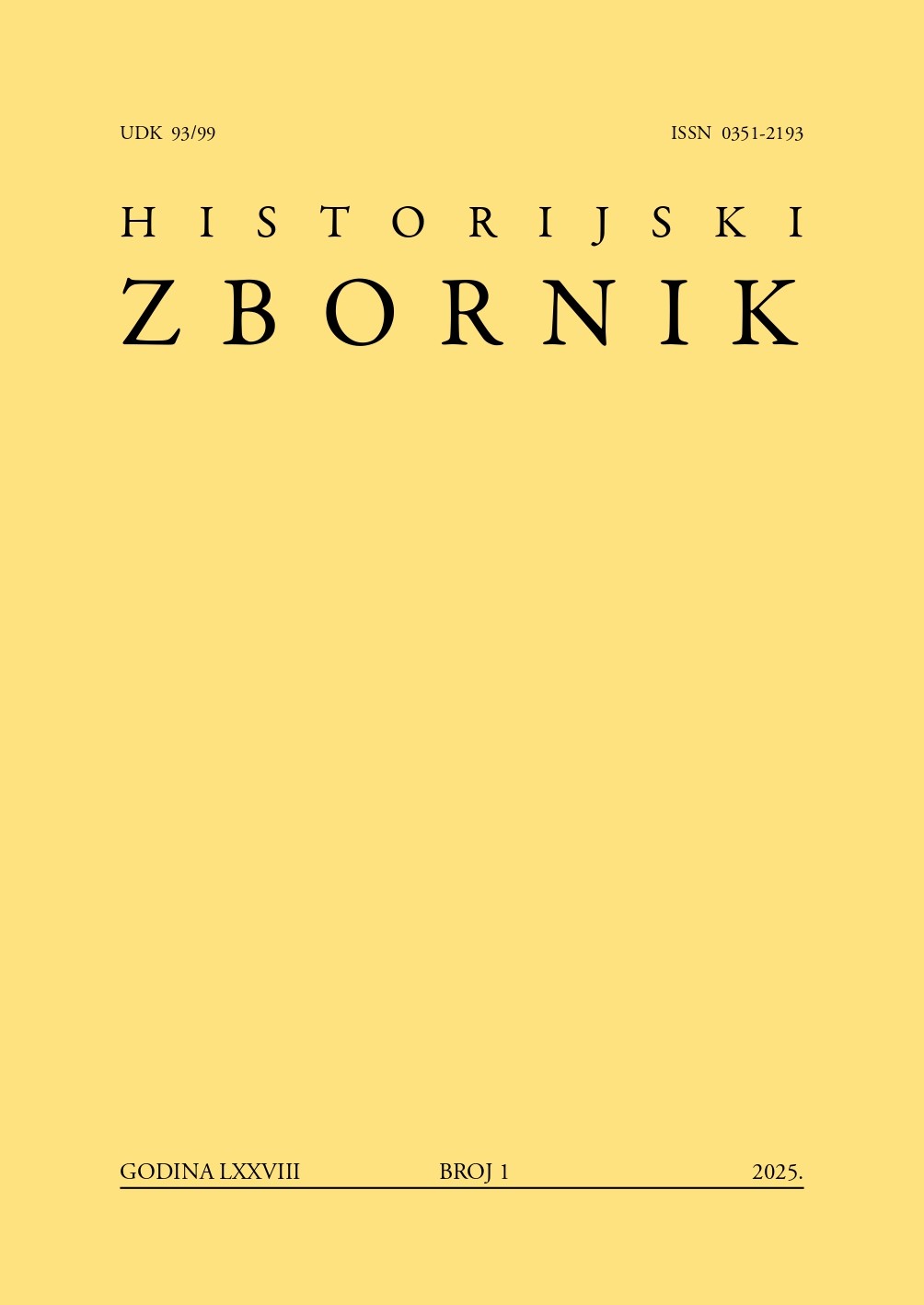Parliamentary representatives of the Lika Regiment in the 1860s
DOI:
https://doi.org/10.59412/hz.78.1.2Keywords:
Military Frontier; Lika Regiment; representatives; Parliament (Sabor) of the Triune Kingdom; 19th centuryAbstract
The adoption of the October Diploma on October 20, 1860 marked the end of neo-absolutism and the introduction of a new structure of government in the Austrian Empire. The Parliament (Sabor) of the Triune Kingdom of Croatia, Dalmatia, and Slavonia convened the following year. Representatives from the Croatian-Slavonic Military Frontier were also allowed to attend the sessions, with the condition that they only participate in discussions concerning the relationship of the Triune Kingdom with the Kingdom of Hungary and the Austrian Empire. However, this did not prevent the representatives from submitting a petition to the ruler demanding that the military system be completely abolished and constitutional order be introduced in that area. The Emperor and King Francis Joseph I granted neither this request nor many others presented by representatives, recognizing only the fact that the Frontier region was an integral part of the Triune Kingdom and promising that that territory would soon be completely unified with the motherland of Croatia. However, in 1866, during the session of the new Parliament, the ruler again refused the request to abolish the military system, explaining that this move would seriously threaten the defensive strength of the entire Empire. This paper provides biographical information about the representatives from the area of the Lika Regiment, who participated in the sessions of those two parliamentary terms. The structure of these representatives changed considerably during these few years; and their political views, primarily of the issue of maintaining the military system, were largely influenced by their professions. These included traders, educational workers, and various military personnel. Information provided by primary sources, such as military lists and contemporary newspapers, revealed the personal profiles of the men in question, enabling us to determine whether or not they truly deserved the honor of being elected as parliamentary representatives.
Downloads
Published
Issue
Section
License

This work is licensed under a Creative Commons Attribution-NonCommercial 4.0 International License.
Copyright holders are the publisher Association for Croatian History and the authors.
Historical Journal is an Open Access journal. Users are allowed to read, download, copy, redistribute, print, search and link to material, and alter, transform, or build upon the material, or use them for any other lawful purpose as long as they attribute the source in an appropriate manner according to the Creative Commons licence CC BY-NC.
The papers published in Historical Journal can be deposited and self archived in the institutional and thematic repositories providing the link to the journal's web pages and HRČAK. Journal does not charge article processing charges (APC). The editors assume no responsibility for statements of fact or opinion made by contributors.

